There is increasing evidence, that lifestyle, diet and environment has a
major impact on the risk of developing cancer, including the most common in men
- prostate. The World Cancer Research Fund recently issued a statement that up
to 50% of cancers could be avoided by a long term change in lifestyle.
Prostate cancer is particularly unique as there is emerging evidence that
a healthy lifestyle could reduce the rate of progression and risk of of
relapse after radical initial treatments. A review of the published
evidence has been sponsored by Macmillan Cancer
Support
Self help lifestyle programme's can also have a significant impact on
the severity of adverse side effects and risk following cancer treatments.
The most important are summarised in the headings below with links to more
comprehensive advice pages:
 Physical
activity Several
large studies link regular exercise with a reduced risk of prostate cancer relapse after radical treatments.
It also reduces the rate of PSA progression
especially if combined with a healthy diet. Three hours a week is the minimum
target, (moderate to brisk walking >3 miles/hour) but up 5-6 hours
still confers a benefit. Exercise helps alleviate many of the adverse risks
of androgen deprivation therapies (e.g.Zoladex)
including weight gain, mood
swings, hot flushes, blood clots and osteoporosis. After radiotherapy it
improves risk of urinary urgency, a better urinary stream and better
erections. After surgery, particularly if combined with pelvic
floor exercises it reduces incontinence risk. Physical
activity Several
large studies link regular exercise with a reduced risk of prostate cancer relapse after radical treatments.
It also reduces the rate of PSA progression
especially if combined with a healthy diet. Three hours a week is the minimum
target, (moderate to brisk walking >3 miles/hour) but up 5-6 hours
still confers a benefit. Exercise helps alleviate many of the adverse risks
of androgen deprivation therapies (e.g.Zoladex)
including weight gain, mood
swings, hot flushes, blood clots and osteoporosis. After radiotherapy it
improves risk of urinary urgency, a better urinary stream and better
erections. After surgery, particularly if combined with pelvic
floor exercises it reduces incontinence risk.
The are numerous exercise programmes available which can suit
most needs, abilities and preferences. These range from from walking
groups, dance classes, dragon boat racing to formal gym classes. There is
a national referral scheme for exercise after many illnesses and in some areas
this applies to cancer- more
about exercise and local facilities
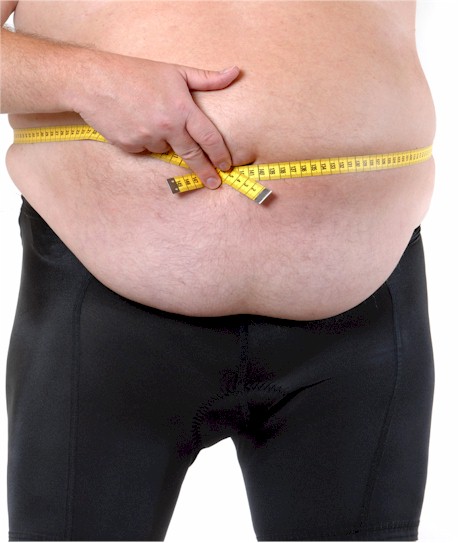 Avoid
obesity Being
overweight increases the risks of surgery, chemotherapy hormone therapy and
radiotherapy. It delays wound healing, increases the risk of infection and blood
clots. After radiotherapy it increases the risk of pelvic symptoms particularly
urinary and rectal urgency and incontinence. Avoid
obesity Being
overweight increases the risks of surgery, chemotherapy hormone therapy and
radiotherapy. It delays wound healing, increases the risk of infection and blood
clots. After radiotherapy it increases the risk of pelvic symptoms particularly
urinary and rectal urgency and incontinence.
Overweight men on hormone therapies
have more hot flushes, join pains and risks of blood clots. A variety of studies have linked obesity with and
high rate of prostate cancer, more aggressive forms of cancer. A number of
published reports have linked obesity with a higher risk of psa
progression in men treated with active surveillance. Other studies have
shown that obese men are more likely to relapse after radiotherapy or surgery
- tips
to help control a healthy weight
 Healthy
sun (vitamin D)
Unlike other essential nutrients >80% of our vitamin D is made in the skin
following interaction with sunlight. The trouble is, especially in the UK, we do
not get enough sun and hence many of us are Vitamin D
deficient which is associate with an increased risk of cancer. A presentation
at the NCRI conference 2012 reported the vitamin D of individuals who
had bought nutritional tests from the online
service established by cancernet. Over
95% of participants had 25 hydroxy Vitamin D
levels lower than 75 nmol/l. and 73% had levels less than 50nmol/l. (See full
presentation). Healthy
sun (vitamin D)
Unlike other essential nutrients >80% of our vitamin D is made in the skin
following interaction with sunlight. The trouble is, especially in the UK, we do
not get enough sun and hence many of us are Vitamin D
deficient which is associate with an increased risk of cancer. A presentation
at the NCRI conference 2012 reported the vitamin D of individuals who
had bought nutritional tests from the online
service established by cancernet. Over
95% of participants had 25 hydroxy Vitamin D
levels lower than 75 nmol/l. and 73% had levels less than 50nmol/l. (See full
presentation).
As well say regular sun exposure (without sun burning), try to
increase other foods with can help increase Vitamin D levels such
as oily fish, nuts and sun dried mushrooms - lifestyle
tips to increase vitamin D
 Reduced
processes sugar Refined
sugars lead to higher insulin levels which encourage cancer progression.
High sugar and insulin levels also lead to over production of Insulin
like Growth Factor (IGF) which is also implicated in carcinogenesis (the
formation of cancer), cancer progression and metastasis. Studies have
also found that sucrose cannot metabolise completely in our bodies,
resulting in the formation of metabolites, such as pyruvic acid, and
unstable sugars containing harmful five carbon atoms. These toxic
by-products have been linked to lowering vitamin E levels and the
formation of free radicals or oxidative metabolites. A number of cohort
studies have linked high sugar diets with a higher incidence of cancer. Reduced
processes sugar Refined
sugars lead to higher insulin levels which encourage cancer progression.
High sugar and insulin levels also lead to over production of Insulin
like Growth Factor (IGF) which is also implicated in carcinogenesis (the
formation of cancer), cancer progression and metastasis. Studies have
also found that sucrose cannot metabolise completely in our bodies,
resulting in the formation of metabolites, such as pyruvic acid, and
unstable sugars containing harmful five carbon atoms. These toxic
by-products have been linked to lowering vitamin E levels and the
formation of free radicals or oxidative metabolites. A number of cohort
studies have linked high sugar diets with a higher incidence of cancer.
Try to avoid processed foods, pre-packed ready meals particularly
those labeled as ‘diet’. Train yourself to resist sweet snacks:
cakes, sweets, biscuits and chocolate bars, sweet drinks: such as cola
or other fizzy drinks or
adding sugar to tea or coffee. Steer clear of restaurants
which add sugar to their meals >>>more
 Healthy
plant based foods. Regular intake of several foods have been linked to a
lower risk of prostate cancer intake of vegetables, colourful fruit, herbs and spices.
These foods are rick in nutrients and healthy phytochemicals which have
anti-cancer properties; They contain minerals and vitamins essential
for healthy metabolism and immunity; They have anti-oxidants which
mop up free radicals before they damage protecting over DNA; They
have phytoestrogenic properties reducing 5 alpha reductase lowering
testosterone levels; They contain polyphenols which have been shown to
have direct effects on a number hallmarks of cancer proliferation and
spread in laboratory studies. Healthy
plant based foods. Regular intake of several foods have been linked to a
lower risk of prostate cancer intake of vegetables, colourful fruit, herbs and spices.
These foods are rick in nutrients and healthy phytochemicals which have
anti-cancer properties; They contain minerals and vitamins essential
for healthy metabolism and immunity; They have anti-oxidants which
mop up free radicals before they damage protecting over DNA; They
have phytoestrogenic properties reducing 5 alpha reductase lowering
testosterone levels; They contain polyphenols which have been shown to
have direct effects on a number hallmarks of cancer proliferation and
spread in laboratory studies.
Try to increase intake of Green tea,
broccoli, pomegranate,
turmeric as well as green cabbage, spinach, dark green lettuce leaves (rocket), leaks, onions, celery,
herbs and spices including garlic, parsley, mint, coriander, thyme, rosemary
and turmeric as well as nuts legumes and colourful berries - .tips
to increase plant based foods
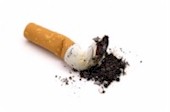 Smoking
increases
the risks of blood clots on hormone therapies, mouth ulcers on chemotherapy and
a higher risk of skin damage. After radiotherapy it si associated with a
higher risk of erectile dysfunction and pelvic
symptoms such as urgency and incontinence. Several cohort trials have also
shown that smoker tend to with more aggressive
grades of prostate cancers at diagnosis which
suggest a worse outcome. Men who continue to smoke after treatment have a
higher risk of relapse. Smoking
increases
the risks of blood clots on hormone therapies, mouth ulcers on chemotherapy and
a higher risk of skin damage. After radiotherapy it si associated with a
higher risk of erectile dysfunction and pelvic
symptoms such as urgency and incontinence. Several cohort trials have also
shown that smoker tend to with more aggressive
grades of prostate cancers at diagnosis which
suggest a worse outcome. Men who continue to smoke after treatment have a
higher risk of relapse.
There are many other reasons to quit - making a commitment to quit and sticking to it. Make a time and date. Most
people who successfully quit smoking do so by stopping altogether, and not
by gradually cutting down. Make a promise to yourself and a punishment if you
fail (e.g. give money to you a charity) - 10 tips to give up smoking
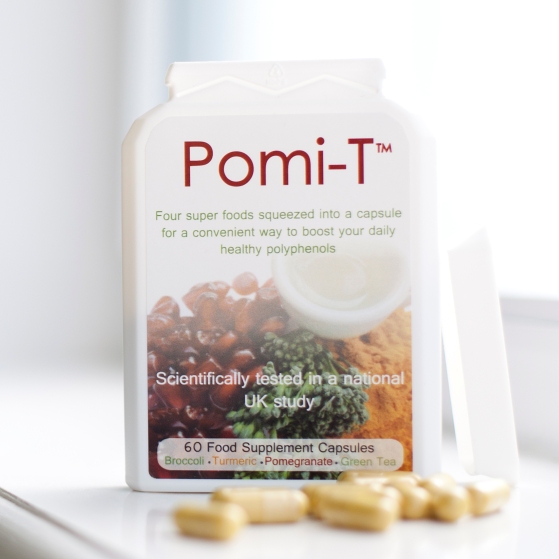 Polyphenol
rich supplements There
is plenty of good evidence that individuals who eat good quantities of
polyphenol rich foods have a lower risk of cancer. Likewise after cancer regular
consumption reduces the relapse rate and slows PSA
progression. Concentrating foods into a pill may be a convenient way to boost
intake but up to now most of the studies involved minerals and vitamins or other
extracted chemical such as lycopene or saw palmetto which either have been shown
to increase the risk of cancer or have no effect. Polyphenol
rich supplements There
is plenty of good evidence that individuals who eat good quantities of
polyphenol rich foods have a lower risk of cancer. Likewise after cancer regular
consumption reduces the relapse rate and slows PSA
progression. Concentrating foods into a pill may be a convenient way to boost
intake but up to now most of the studies involved minerals and vitamins or other
extracted chemical such as lycopene or saw palmetto which either have been shown
to increase the risk of cancer or have no effect.
On the other hand, concentrated whole food supplements are showing
promise with laboratory studies reporting reduction in markers of growth and
metastasis especially with the polyphenol rich food such as green tea,
broccoli, pomegranate
and turmeric. A purified combination of these
foods known as Pomi-T has been evaluated in
men with prostate cancer. The results presented at the ASCO conference 2013
showed a 63% reduced rate of PSA progression compared to placebo -
More about the Pomi-T study
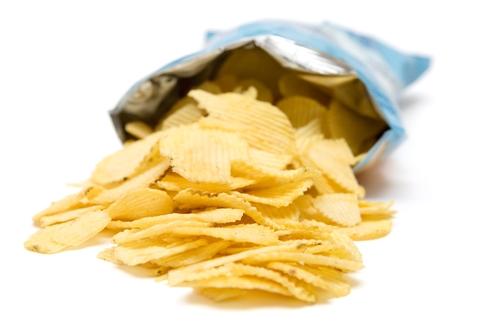 Carcinogens
Certain
dietary chemicals (carcinogens) can cause normal cells to mutate into cancer cells.
The fundamental mechanism is the formation of super oxide free radicals which are
highly damaging to DNA. Splitting and rearranging the DNA can separate the harmful genes
(oncogenes)
from the suppressor genes, which is the first step in the cancer process. It often takes several different types of mutation for the
cancer process to progress, so although people with established cancer already have already sustained the
initiate DNA damage in order to mutate from benign to malignant cells, the
cancer process can also be fuelled by continuing consumption of foods high in
carcinogens encourage the cancer to mutate into a more
aggressive types. Carcinogens
Certain
dietary chemicals (carcinogens) can cause normal cells to mutate into cancer cells.
The fundamental mechanism is the formation of super oxide free radicals which are
highly damaging to DNA. Splitting and rearranging the DNA can separate the harmful genes
(oncogenes)
from the suppressor genes, which is the first step in the cancer process. It often takes several different types of mutation for the
cancer process to progress, so although people with established cancer already have already sustained the
initiate DNA damage in order to mutate from benign to malignant cells, the
cancer process can also be fuelled by continuing consumption of foods high in
carcinogens encourage the cancer to mutate into a more
aggressive types.
Steer clear of heavily processed
foods, containing high concentrations of additives, Avoid fatty foods
and particularly those which have been reheated in fats and oil. Avoid super heated snacks such crisps, chips and
roasted or baked bars. Reduce aromatic hydrocarbons
exposure by avoiding smoked, barbequed or burnt foods. ..more
about carcinogens
 Excess alcohol
Heavy drinking, especially when it's beer,
increases the risk for highly aggressive prostate cancer. More specifically
>50 grams of alcohol (at least four drinks)
daily doubled their risk of high-grade prostate cancer. In one large study,
heavy drinking did not influence the
risk of low-grade cancer Excess alcohol
Heavy drinking, especially when it's beer,
increases the risk for highly aggressive prostate cancer. More specifically
>50 grams of alcohol (at least four drinks)
daily doubled their risk of high-grade prostate cancer. In one large study,
heavy drinking did not influence the
risk of low-grade cancer
Set yourself an alcohol limit and stick to it,
if necessary keep an alcohol diary. Pace your drinks by sipping slowly,
don't rush to get the next drink form the bar or top up when your glass
in empty. Choose non-premium beers, alternate alcoholic drinks with soft drinks.
Try not to drink at home unless socialising, perhaps find something else to do instead - for example, going to the
gym, museum arts clubs. Have alcohol-free days to remind yourself you don’t always have
to drink. .. more about alcohol and cancer
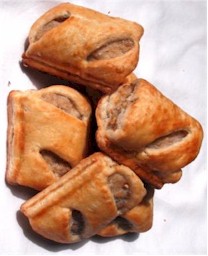 Unhealthy
fatty
foods A large analysis of
USA health professionals who had a
high energy and fat intake subsequently were associated with an increased
risk of advanced prostate cancer especially for cases with a young age at
diagnosis or had a positive family history of cancer. At a recent
conference in the National Institute of Health, a Cambridge University
scientist, presented data to show that people who eat more than 90g of
fat a day had twice the risk of developing cancer than those eating 40g
per day. Unhealthy
fatty
foods A large analysis of
USA health professionals who had a
high energy and fat intake subsequently were associated with an increased
risk of advanced prostate cancer especially for cases with a young age at
diagnosis or had a positive family history of cancer. At a recent
conference in the National Institute of Health, a Cambridge University
scientist, presented data to show that people who eat more than 90g of
fat a day had twice the risk of developing cancer than those eating 40g
per day.
Try to avoid foods which contain hydrogenated or saturated fats
such as biscuits, cakes, pastries,
meat pies, sausages, hard cheese, butter and processed fatty foods
containing coconut or palm oil. Choose lean cuts of meat and
chicken without skin. Cut down on deep-fried snacks such
as crisps, pakoras, samosas, bhajis, and chips. Cut down on sweets, desserts,
creamy foods and milk chocolates. Avoid dishes containing ghee, rather stick to drier (less fatty) dishes
such as dry curries, rather than dishes with rich or creamy sauces. >>more
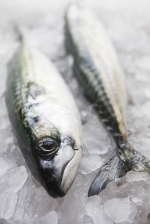 Healthy fats
It is a misconception that all fats are unhealthy. In fact,
the opposite is true - health fats contain essential fatty acids such as
omega 3,6 and 9 important for a healthy metabolism. They also help to
reduce the unhealthy saturated fats and cholesterol. A number of trials have
linked a lower intake of these fats with an increased risk of cancer. The only
negative associate in this area was a retrospective analysis of the SELECT and
Health Professionals Study showed that men with high omega three levels in their
blood stream had an increased level of prostate cancer - this may actually be a
correlation not a causation as men who took high doses of Omega 3 may have taken
supplement which we know may increase the cancer risk such as Vitamin E, A and
selenium. Nevertheless if taking a fish oil supplement take some days off and
never exceed the RDA. Healthy fats
It is a misconception that all fats are unhealthy. In fact,
the opposite is true - health fats contain essential fatty acids such as
omega 3,6 and 9 important for a healthy metabolism. They also help to
reduce the unhealthy saturated fats and cholesterol. A number of trials have
linked a lower intake of these fats with an increased risk of cancer. The only
negative associate in this area was a retrospective analysis of the SELECT and
Health Professionals Study showed that men with high omega three levels in their
blood stream had an increased level of prostate cancer - this may actually be a
correlation not a causation as men who took high doses of Omega 3 may have taken
supplement which we know may increase the cancer risk such as Vitamin E, A and
selenium. Nevertheless if taking a fish oil supplement take some days off and
never exceed the RDA.
Aim to increase weekly
amounts of oily sea fish - mackerel, herring,
tuna, swordfish, salmon, sardine, other white sea fish – cod, sea
bass, bream. But also fresh water fish – lake varieties,
trout and river salmon. Also increase plant based oils from olive oils (and others rapeseed,
soya, sunflower), avocados, nuts – walnuts, almonds, brazil,
peanut, pine, cashews, hazel and macadamia nuts; seeds – dried pumpkin, sunflower
and linseeds; leafy green vegetables and hemp >>more
 Mineral
and vitamin supplements A short course of a multivitamin may
well be helpful after an acute illness, recovering form a cold or
surgery. A number of well conducted large trials however have shown, in terms of
cancer, that they either have benefits or they actually are associated with an increased risk of cancer. For example the
SELECT study showed and increased risk for selenium and vitamin E and
men in Health Professionals Study showed higher than recommended Zn
intake was associated with an increased risk. The CARET and ATBC Trials
also showed that Vitamin A and E supplements actually increased the risk of lung
cancer and cardiac disease. Mineral
and vitamin supplements A short course of a multivitamin may
well be helpful after an acute illness, recovering form a cold or
surgery. A number of well conducted large trials however have shown, in terms of
cancer, that they either have benefits or they actually are associated with an increased risk of cancer. For example the
SELECT study showed and increased risk for selenium and vitamin E and
men in Health Professionals Study showed higher than recommended Zn
intake was associated with an increased risk. The CARET and ATBC Trials
also showed that Vitamin A and E supplements actually increased the risk of lung
cancer and cardiac disease.
If you are concerned about your essential nutrient levels eat a healthy diet
rather than take supplements or otherwise invest in an essential more
about micro
nutritional analysis
 Essential
nutrient testing Deficiencies of micronutrients such as vitamins,
essential minerals, fatty acids and antioxidant enzymes can lead to an imbalance in the immunity and an increase risk
of chronic diseases including cancer. The difficulty is that it is also clear from
published studies that
an excess of vitamins or minerals can also increase the risks of cancer as
well as heart
attacks and other diseases. As mentioned above, in the west it is not clear
whether an individual has an excess, deficiency or optimal levels in their
body. Essential
nutrient testing Deficiencies of micronutrients such as vitamins,
essential minerals, fatty acids and antioxidant enzymes can lead to an imbalance in the immunity and an increase risk
of chronic diseases including cancer. The difficulty is that it is also clear from
published studies that
an excess of vitamins or minerals can also increase the risks of cancer as
well as heart
attacks and other diseases. As mentioned above, in the west it is not clear
whether an individual has an excess, deficiency or optimal levels in their
body.
The most reliable way to ensure you have the correct amounts of vital nutrients
in your diet is to measure the body's levels. A measure of
these nutrients will empower you with the knowledge to be able to modify your
diet, or take specific supplements, which will give you the best possible
chance of fighting cancer. - read more about
nutritional testing.
|
Side
effects influenced by lifestyle and
self help strategies:
|
| During treatment: |
After
treatment (long term):
|
|
|
|
References:
- Silberstein
J, Parsons JK. Current concepts in diet and prostate cancer. Aging
Health. 2008;4(5):495-505.
- Silberstein
JL, Parsons JK. Prostate cancer prevention: Concepts and clinical
recommendations. Prostate Cancer Prostatic Dis. 2010;13(4):300-306.
- Marshall
JR, Tangen CM, Sakr WA, Wood DP Jr, Berry DL, Klein EA, Lippman SM, Parnes
HL, Alberts DS, Jarrard DF, Lee WR, Gaziano JM, Crawford ED, Ely B, Ray M,
Davis W, Minasian LM, Thompson IM Jr. Phase III trial of selenium to prevent
prostate cancer in men with high-grade prostatic intraepithelial neoplasia:
SWOG S9917. Cancer Prev Res (Phila). 2011;4(11):1761-1769.
- Sonn
GA, Aronson W, Litwin MS. Impact of diet on prostate cancer: A review.
Prostate Cancer Prostatic Dis. 2005;8(4):304-310.
- Stevens
VL, Rodriguez C, Pavluck AL, McCullough ML, Thun MJ, Calle EE. Folate
nutrition and prostate cancer incidence in a large cohort of US men. Am
J Epidemiol. 2006;163:989-996.
- Richman
EL, Carroll PR, Chan JM. Vegetable and fruit intake after diagnosis and risk
of prostate cancer progression. Int J Cancer. 2012;131(1):201-210.
- Barber
NJ, Zhang X, Zhu G, Pramanik R, Barber JA, Martin FL, Morris JD, Muir GH.
Lycopene inhibits DNA synthesis in primary prostate epithelial cells in
vitro and its administration is associated with a reduced prostate-specific
antigen velocity in a phase II clinical study. Prostate Cancer Prostatic
Dis. 2006;9(4):407-413.
- Brooks
JD, Paton VG, Vidanes G. Potent induction of phase 2 enzymes in human
prostate cells by sulforaphane. Cancer Epidemiol Biomarkers Prev.
2001;10(9):949-954.
- Singh
AV, Xiao D, Lew KL, Dhir R, Singh SV. Sulforaphane induces caspase-mediated
apoptosis in cultured PC-3 human prostate cancer cells and retards growth of
PC-3 xenografts in vivo. Carcinogenesis. January 2004;25(1):83-90.
- Spentzos
D, Mantzoros C, Regan MM, Morrissey ME, Duggan S, Flickner-Garvey S,
McCormick H, DeWolf W, Balk S, Bubley GJ. Minimal effect of a low-fat/high
soy diet for asymptomatic, hormonally naive prostate cancer patients.
Clin Cancer Res. 2003;9(9):3282-3287.
- Ornish
D, Weidner G, Fair WR, Marlin R, Pettengill EB, Raisin CJ, Dunn-Emke S,
Crutchfield L, Jacobs FN, Barnard RJ, Aronson WJ, McCormac P, McKnight DJ,
Fein JD, Dnistrian AM, Weinstein J, Ngo TH, Mendell NR, Carroll PR.
Intensive lifestyle changes may affect the progression of prostate cancer. J
Urol. 2005;174(3):1065-1069; discussion 9-70.
- Saxe
GA, Major JM, Nguyen JY, Freeman KM, Downs TM, Salem CE. Potential
attenuation of disease progression in recurrent prostate cancer with
plant-based diet and stress reduction. Integr Cancer Ther.
2006;5(3):206-213.
- Cooperberg
MR, Lubeck DP, Meng MV, Mehta SS, Carroll PR. The changing face of low-risk
prostate cancer: Trends in clinical presentation and primary management.
J Clin Oncol. 2004;22(11):2141-2149.
- Carroll
PR. Early stage prostate cancer—Do we have a problem with over-detection,
overtreatment or both? J Urol. 2005;173(4):1061-1062.
- Miller
DC, Sanda MG, Dunn RL, Montie JE, Pimentel H, Sandler HM, McLaughlin WP, Wei
JT. Long-term outcomes among localized prostate cancer survivors:
Health-related quality-of-life changes after radical prostatectomy, external
radiation, and brachytherapy. J Clin Oncol. 2005;23(12):2772-2780.
- Potosky
AL, Davis WW, Hoffman RM, Stanford JL, Stephenson RA, Penson DF, Harlan LC.
Five-year outcomes after prostatectomy or radiotherapy for prostate cancer:
The prostate cancer outcomes study. J Natl Cancer Inst.
2004;96(18):1358-1367.
- Albertsen
PC, Hanley JA, Fine J. 20-year outcomes following conservative management of
clinically localized prostate cancer. JAMA. 2005;293(17):2095-2101.
- Klotz
L. Active surveillance for prostate cancer: For whom? J Clin Oncol.
2005;23(32):8165-8169.
- Warlick
C, Trock BJ, Landis P, Epstein JI, Carter HB. Delayed versus immediate
surgical intervention and prostate cancer outcome. J Natl Cancer Inst.
2006;98(5):355-357.
- Parsons
JK, Newman VA, Mohler JL, Pierce JP, Flatt S, Marshall J. Dietary
modification in patients with prostate cancer on active surveillance: A
randomized, multicentre feasibility study. BJU Int. 2008;101(10):1227-1231.
|
 Reduced
processes sugar Refined
sugars lead to higher insulin levels which encourage cancer progression.
High sugar and insulin levels also lead to over production of Insulin
like Growth Factor (IGF) which is also implicated in carcinogenesis (the
formation of cancer), cancer progression and metastasis. Studies have
also found that sucrose cannot metabolise completely in our bodies,
resulting in the formation of metabolites, such as pyruvic acid, and
unstable sugars containing harmful five carbon atoms. These toxic
by-products have been linked to lowering vitamin E levels and the
formation of free radicals or oxidative metabolites. A number of cohort
studies have linked high sugar diets with a higher incidence of cancer.
Reduced
processes sugar Refined
sugars lead to higher insulin levels which encourage cancer progression.
High sugar and insulin levels also lead to over production of Insulin
like Growth Factor (IGF) which is also implicated in carcinogenesis (the
formation of cancer), cancer progression and metastasis. Studies have
also found that sucrose cannot metabolise completely in our bodies,
resulting in the formation of metabolites, such as pyruvic acid, and
unstable sugars containing harmful five carbon atoms. These toxic
by-products have been linked to lowering vitamin E levels and the
formation of free radicals or oxidative metabolites. A number of cohort
studies have linked high sugar diets with a higher incidence of cancer.



 Healthy
plant based foods
Healthy
plant based foods


 Excess alcohol
Excess alcohol








